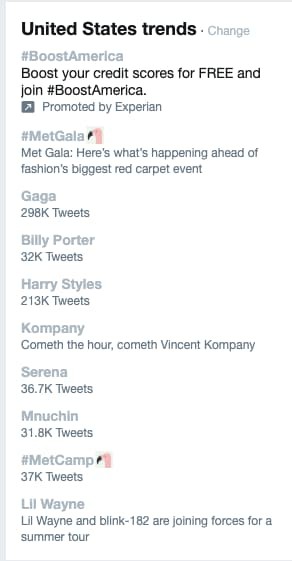In many ways, marketing is a game of trend watching. The marketer who’s best at spotting and using trends earns their business market share, brand recognition, and ultimately, revenue.
But how do you search for trends? And where do you start?
Well, since it owns more than 92% of the global search engine market, the answer to both of these questions is, Google.
Google’s nearest competitor, Bing, only holds 2.5% of market share, while Yahoo accounts for 1.5%. The distribution has remained relatively stable over the past few years with Google consistently claiming competitive victory thanks to detailed search results, in-depth analytics, and evolving service offerings.
Consider the rapid uptake of "Google" as a verb meaning, "to search" — "I’ll just Google it," "can’t you Google that?" "isn’t it on Google?" It’s not an exaggeration to say that when it comes to searching for information online, Google is — by far — the digital frontrunner.
Google also makes efforts to personalize search results, in turn, increasing the chances that users will opt for Google the next time they have a question. For users that aren’t logged into a Gmail or another Google account, the company uses anonymously stored browser cookies to get a sense of search histories and preferences.
For users signed into their Google account, Chrome’s browser history provides the data necessary for Google to construct a profile based on age, language preference, gender and search preferences, which informs the type of search results returned. Location offers an easy example of this approach — if users have location services turned on, Google search results will be filtered by geographic location to increase overall relevance.
Now, let’s look at a few of this year's top Google Search statistics and take a deeper dive into the trending searches that guide your marketing strategy.
Top Google Search Statistics in 2021
Now that we know how to search for trending topics, let’s look at how Google influences search with these latest statistics.
- The top five Google searches in 2020 were "Election results," "Coronavirus," "Kobe Bryant," "Coronavirus update," and — unsurprisingly — "Coronavirus symptoms." (Google)
- More than 50% of Google searches end without a click. (Search Engine Land)
- 92% of all search queries are long-tailed keywords. (Backlinko)
- As of October 2020, there were more than 267 million unique U.S. visitors to Google. (Statista)
- 89% of URLs and 37% of URLs in positions 1-20 rank differently on mobile and desktop. (SEMRush)
- There are now more than 1.8 billion Gmail users worldwide. (TechJury)
- Compressing images and text could help 25% of web pages save more than 250KB and 10% save more than 1 MB. These changes reduce bounce rates and increase page rank on Google SERPs. (Google)
- Chrome accounted for 69% of web browser market share in 2020. (Net Marketshare)
- In 2021, 56% of web traffic took place on mobile phones. (Broadband Search)
- 14% of Google searches are a question. (Backlinko)
- In 2020, 500 keywords accounted for 8.4% of all search volume. (Backlinko)
- The average click-through rate for first place on desktop is higher than that of mobile, at 31.5% and 24% respectively. (Advanced Web Ranking)
- Four times as many people are likely to click on a paid search ad on Google (63%) than on any other search engine — Amazon (15%), YouTube (9%), and Bing (6%). (Clutch)
- 55% of teens use voice search on Google every day. (Marketing Dive)
- 55% of people clicking on Google search ads prefer those to be text ads. (Clutch)
- For every $1 businesses spend on Google Ads, they make an average of $2 in revenue. (Google)
- The average click-through rate in Google Ads across industries is 3.17% in the search network and 0.46% on the display network. (WordStream)
- The average cost-per-click for a keyword is about $0.61. (Backlinko)
- The average cost-per-click in AdWords across all industries is $48.96 for search and $75.51 for display. (WordStream)
- More than 90% of web pages receive zero organic traffic from Google. Just about 5% receive 10 visits or less each month. (Ahrefs)
- A third of all Google searches are for an image and 13% of SERPs feature an "Image Pack." (Moz)
- The average keyword is roughly two words long. (Backlinko)
- The average conversion rate in AdWords across all industries is 3.75% for search and 1.77% for display. (WordStream)
- There are over 190 different versions of Google Search. (GiT Magazine)
- 25. When Google opened its proverbial doors in September 1998, it only averaged about 10,000 daily search queries. ("The Search
With search volumes constantly fluctuating in response to world events and evolving news coverage, it’s worth knowing what searches are trending, how quickly they’re ramping up, and how they tie into similar keyword queries.
While one option is a scattershot approach — simply type a potential trend term into Google and see how many total results are reported — more targeted options often provide an easier path to improved search performance.
Let’s review some of the most useful tools available in the section below.
1. Google Trends
Review the "Year in Search," take Google Trends lessons, and see what’s trending now. You can also view the peaks and valleys of topic interest over time, which uncovers seasonality and allows you to plan your marketing calendar accordingly. Plus, find related topics and queries, and identify sub-regions your topic has been trending to better target your campaigns.
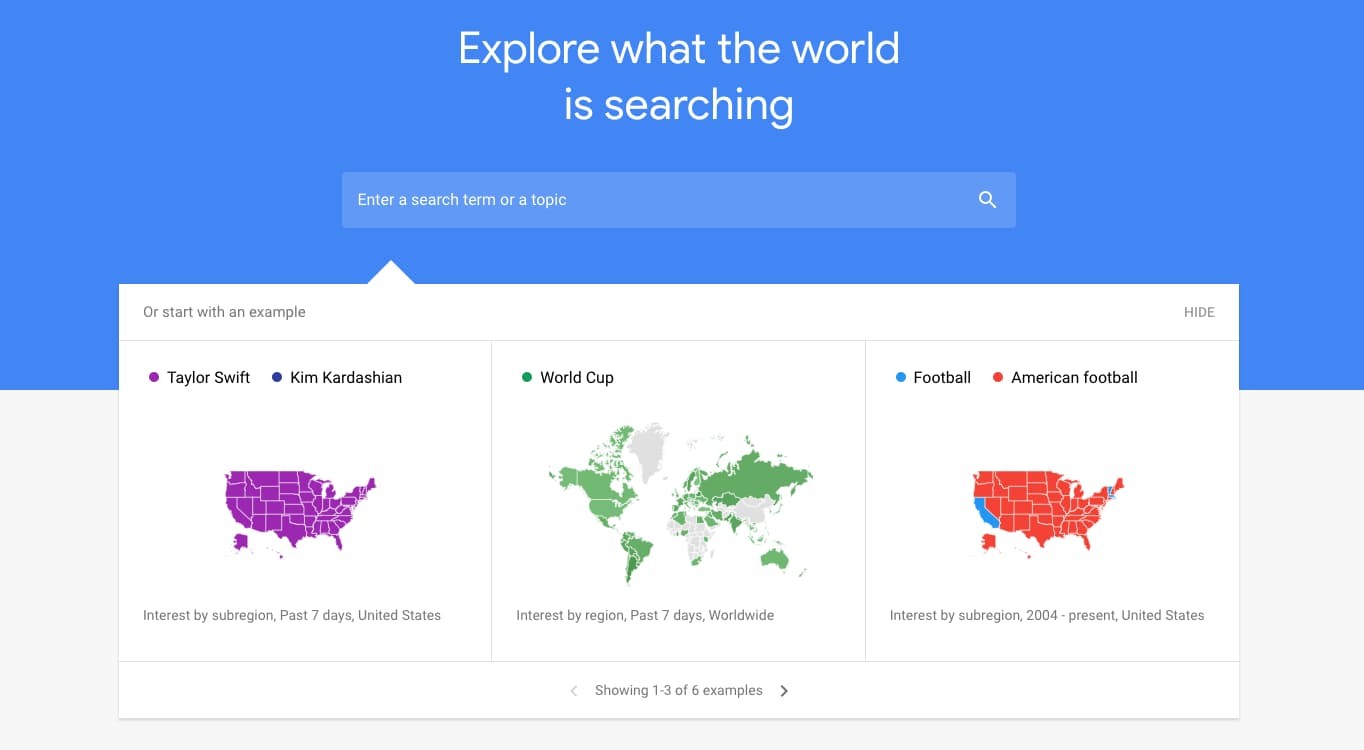
2. Think with Google
Discover articles, benchmark reports, and consumer insights that keep you up to speed on search. From ad bidding strategies to brand jingles, you’ll find interesting content that helps you think bigger while staying educated on how to leverage Google search for your business.
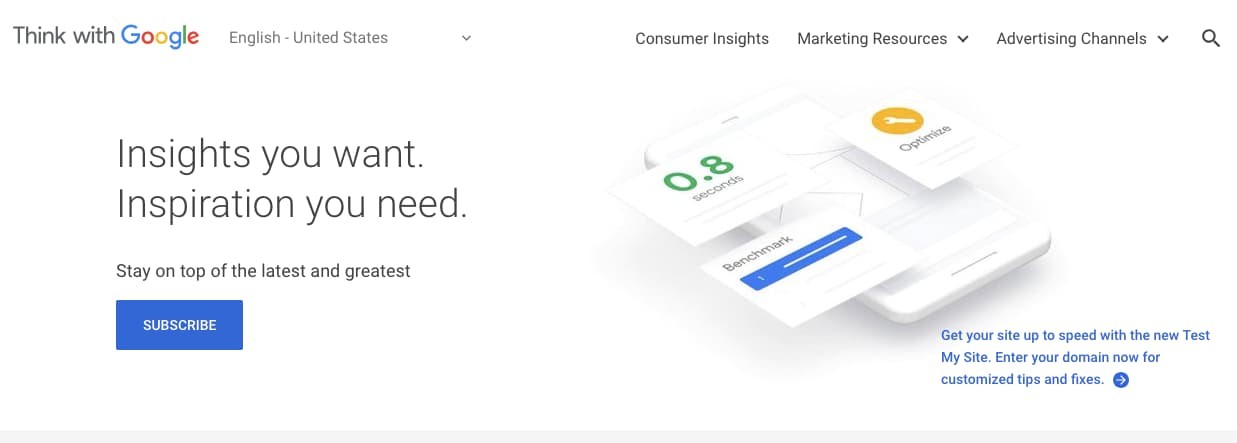
3. Twitter
Sign on to Twitter for more than vaguely hostile political debates. Use the "trends" feature to uncover what’s trending in your state, country, or around the globe. When you click into a trend, you’ll see top tweets about the topic, relevant news stories, and live responses as well.
4. BuzzSumo
Identify the most shared content in the previous 12 months or the last 24 hours with BuzzSumo. BuzzSumo allows you to drill down and analyze the topics that matter to your industry, your competitors, and the influencers you learn from.
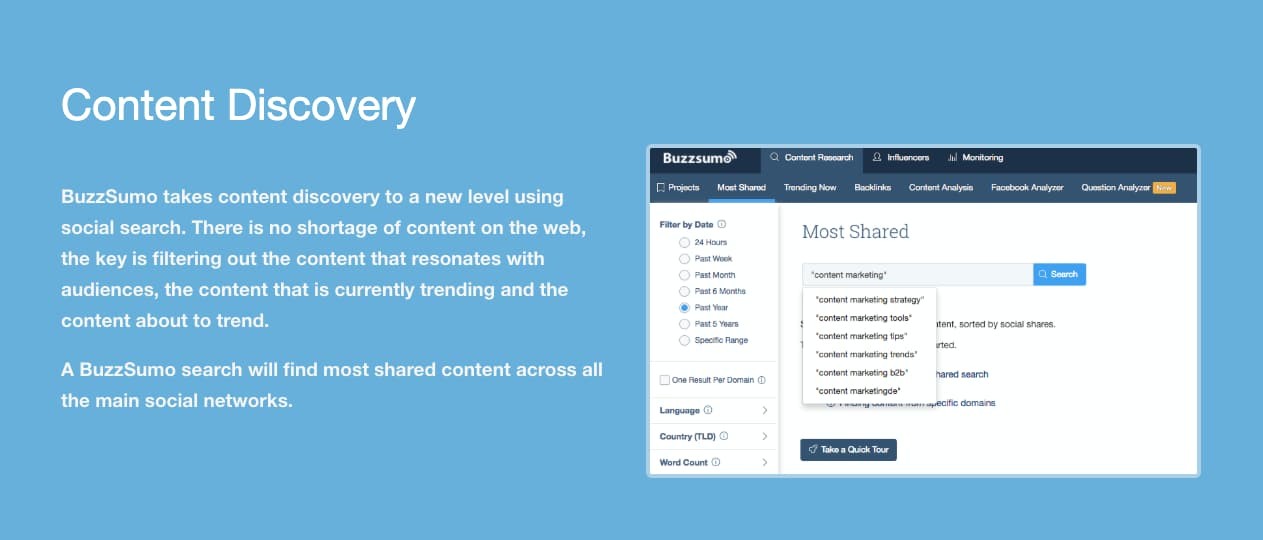
5. Feedly
This RSS feed aggregator allows you to follow your favorite brands and see their most recent content in one place. Add your favorites and discover new publishers by searching your industry, skills, or — you guessed it — trending topics. Feedly also allows you to set up keyword alerts, so you’re always tracking the latest trends on topics you’re interested in.
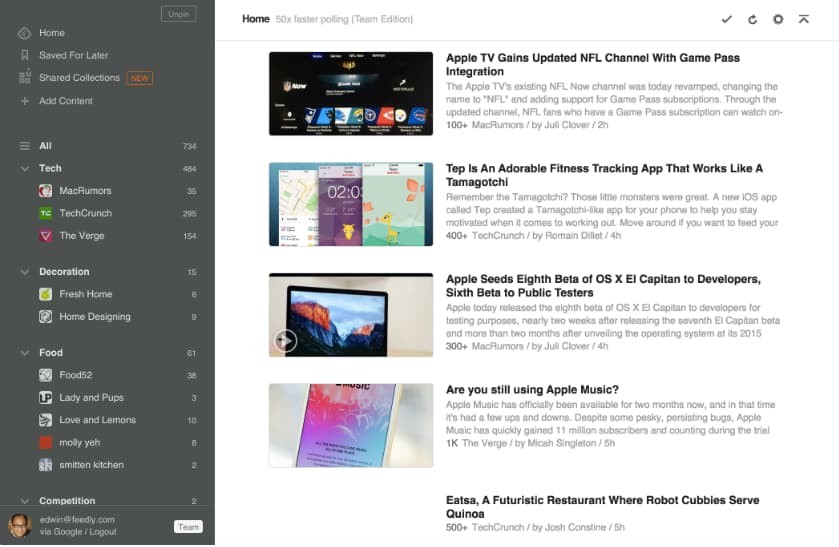
6. Reddit
Freshness and user-based voting determine how content is prioritized on Reddit. A quick visit to the homepage shows you trending or popular posts. And, you can filter by country or recency for a more relevant feed.
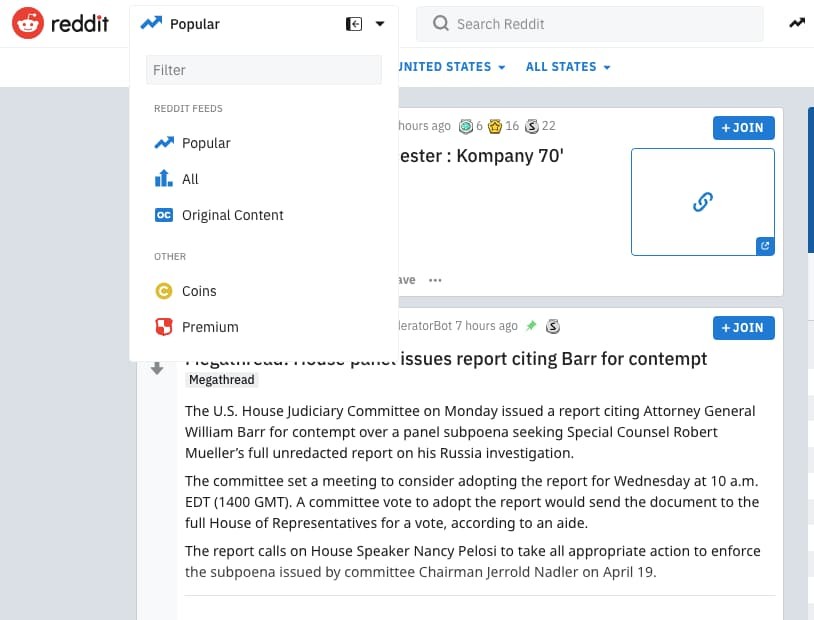
7. Ahrefs
Conduct competitive research, home in on a keyword, or search for trending topics. Ahrefs helps you identify trending content and shows you what to do to outrank your competitors.
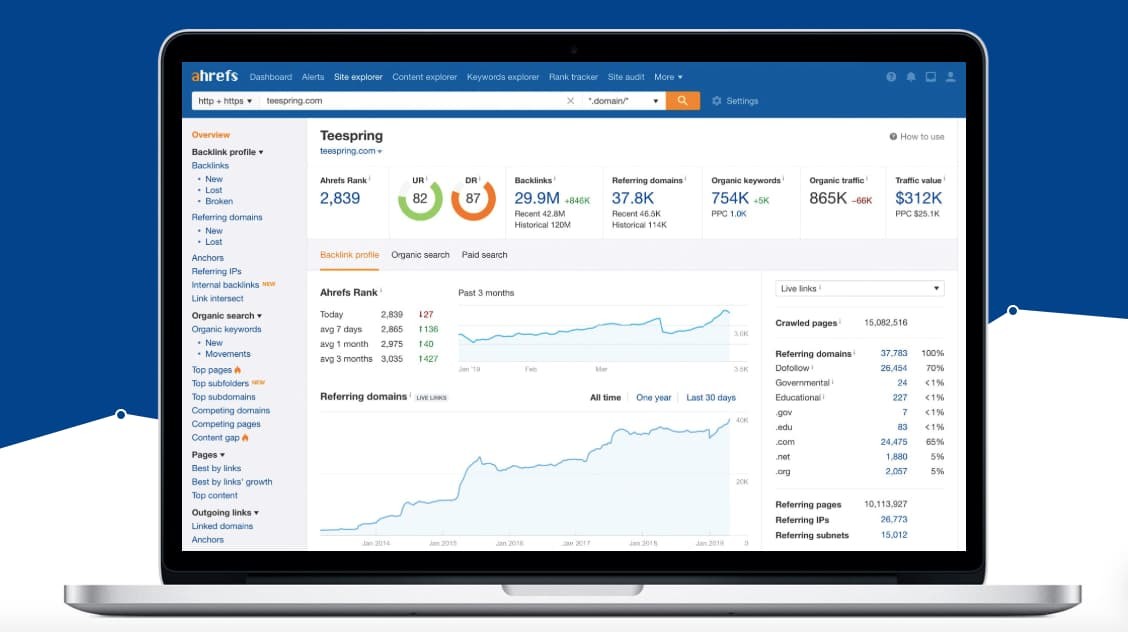
8. Pocket
Pocket allows you to save content from anywhere on the web. Review your content whenever you wish and head to the Explore page to find trending topics that are relevant to you.
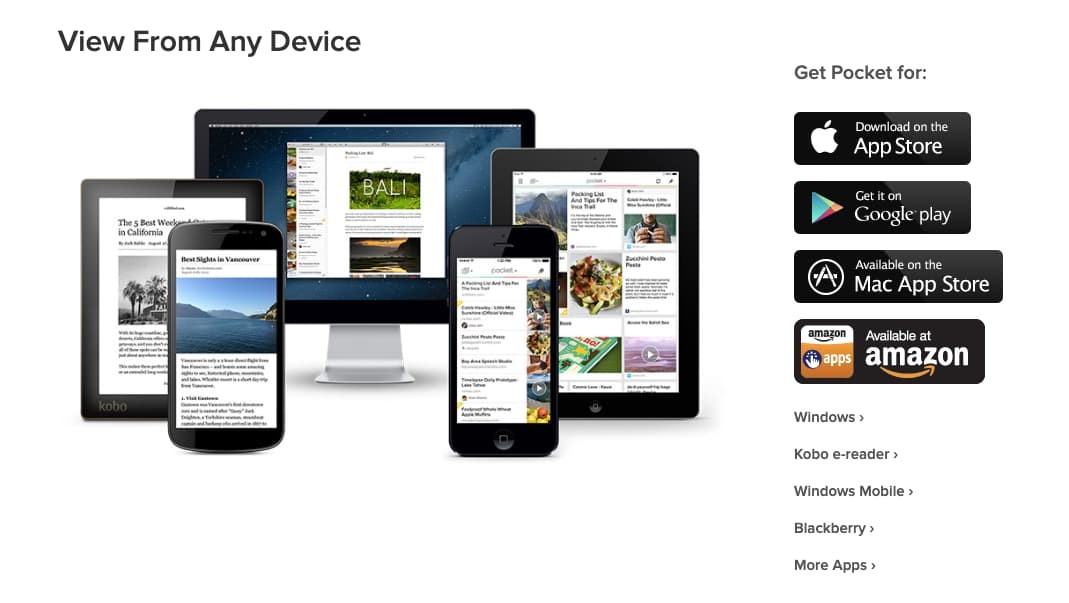
9. Quora
Sign up for Quora and select topic areas that interest you (e.g., "startups," "marketing," and "economics"). Quora will stock your feed with questions related to your content interests. This gives you insight into what your customers are asking, real-time debates about competitors, and even allows you to answer questions about topics you have experience in.
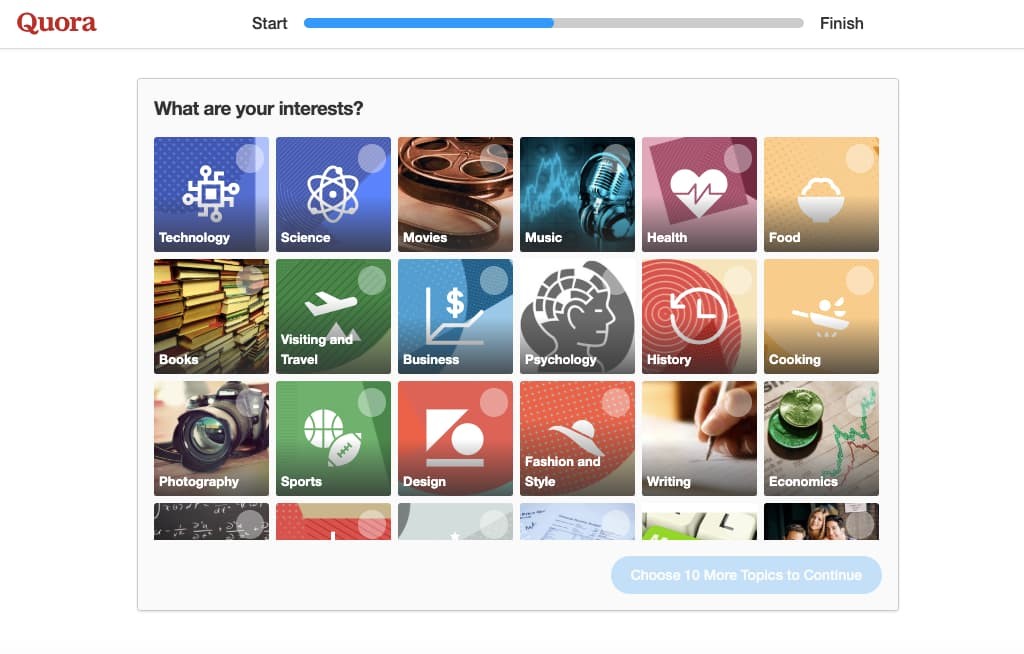
Expanding Your Google Impact
Bottom line? Google owns the largest piece of both search and web browser market shares and provides a host of interconnected services that empower the company to deliver personalized, real-time search results.
For marketers, this makes Google an irreplaceable tool for boosting consumer loyalty, courting new clients, and improving customer conversions. Armed with actionable trend data and relevant source statistics, marketing teams can expand their Google impact and ensure the right content gets seen by the right customers to jumpstart the sales process.


